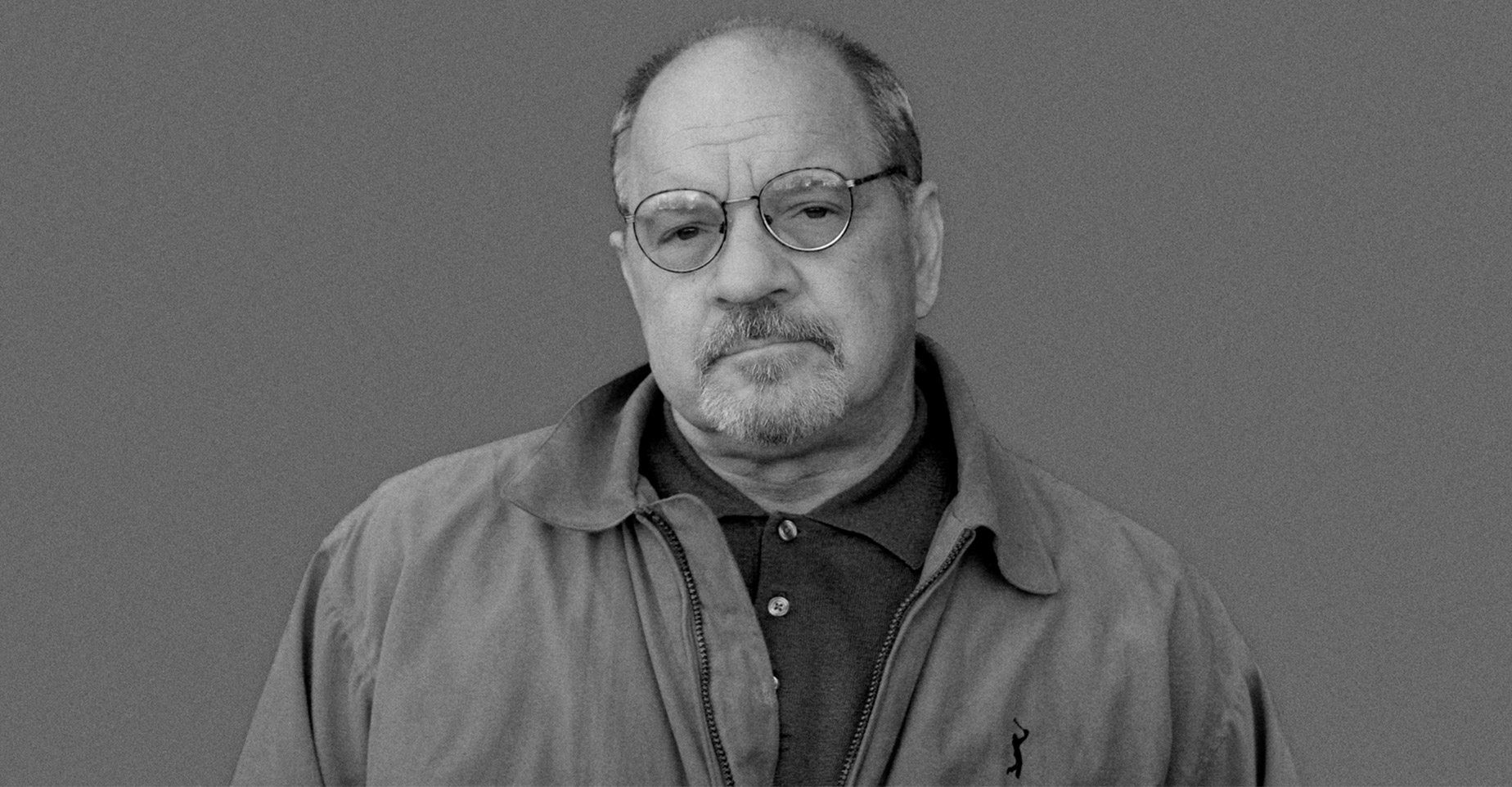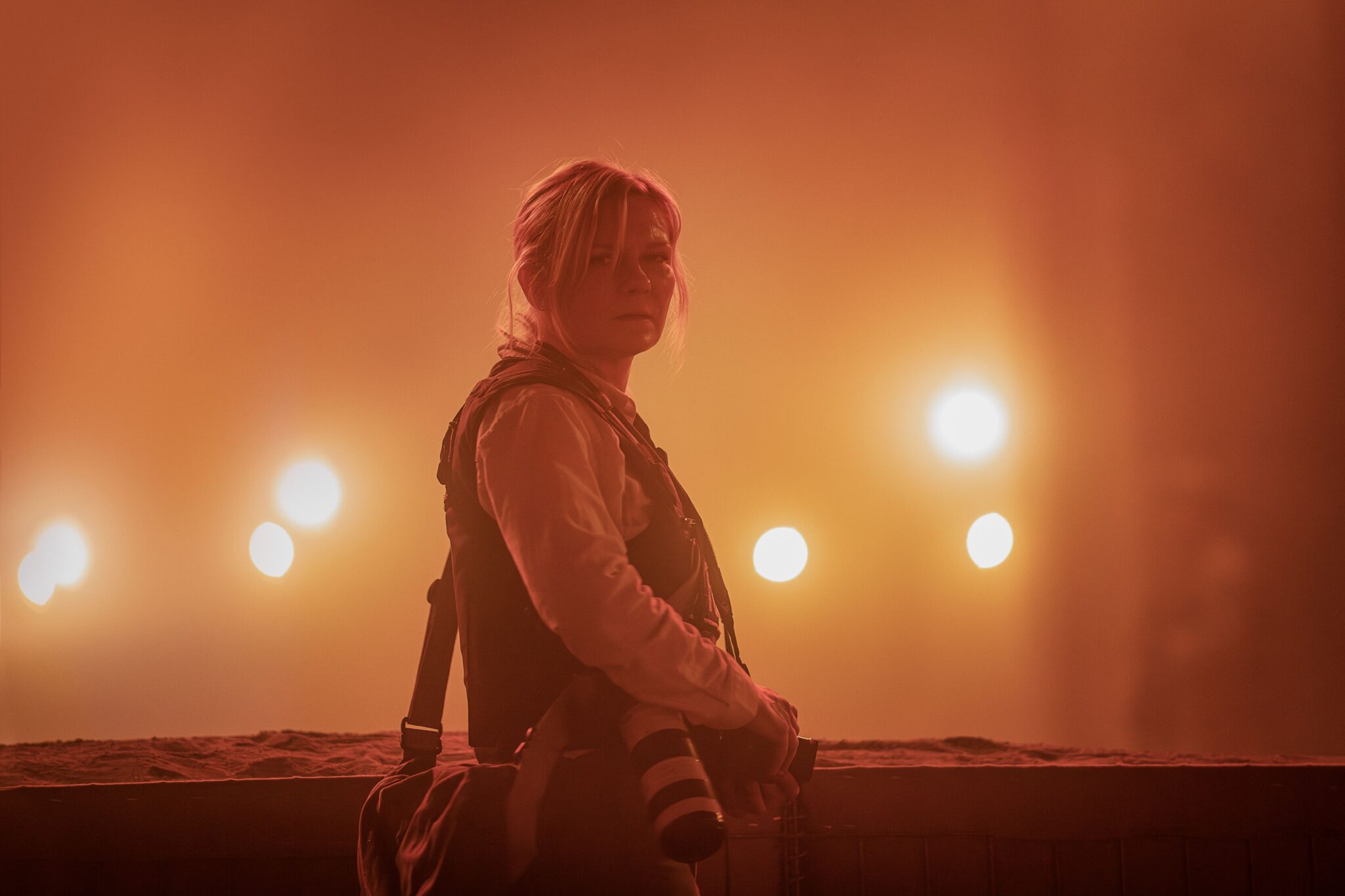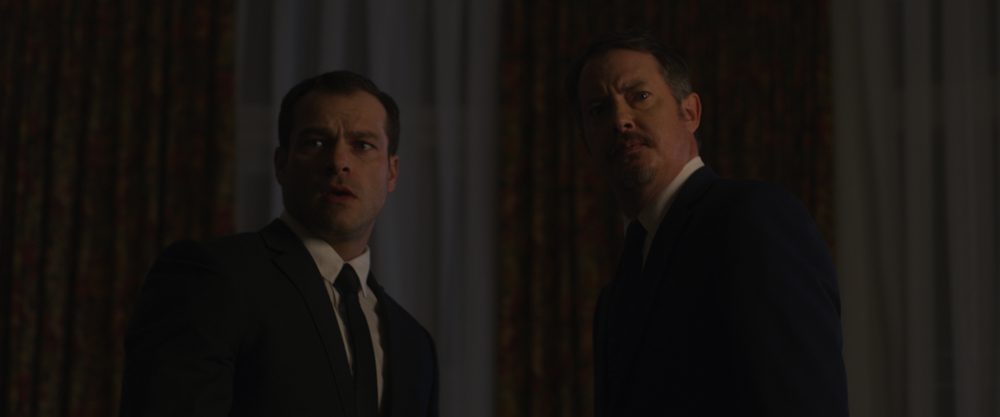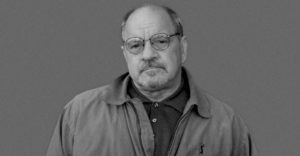 Written and directed by the legendary Paul Schrader (Taxi Driver, The Last Temptation of Christ), First Reformedtells the story of Reverend Toller (Ethan Hawke), a pastor of a small church in upstate New York. After an encounter with an unstable congregant and his pregnant wife leaves him shaken, Toller finds himself embroiled in an environmental controversy that involves the local megachurch. His faith waning and his body slowly succumbing to illness and addiction, Toller is forced to re-examine all of his beliefs and how they connect in today?s culture. Having grown up within the church setting, Schrader believes that his upbringing has often affected how he interacts with cinema.
Written and directed by the legendary Paul Schrader (Taxi Driver, The Last Temptation of Christ), First Reformedtells the story of Reverend Toller (Ethan Hawke), a pastor of a small church in upstate New York. After an encounter with an unstable congregant and his pregnant wife leaves him shaken, Toller finds himself embroiled in an environmental controversy that involves the local megachurch. His faith waning and his body slowly succumbing to illness and addiction, Toller is forced to re-examine all of his beliefs and how they connect in today?s culture. Having grown up within the church setting, Schrader believes that his upbringing has often affected how he interacts with cinema.
?I was raised in the church, a product of Christian school system. So, we didn’t see movies. Those weren?t allowed. So, I got sort of interested in movies at the college level and, [more specifically,] serious movies like European cinema of the sixties, and Bergman. That’s sort of how I got interested. I wrote a book [titled Transcendence in Film] about spirituality in cinema at that time because I was a film critic. Then, I drifted into the commercial cinema and got obsessed with the attractions of action, empathy and psychological realism of sexuality and made movies in that vein and did the devil’s work for many decades.?
Despite his upbringing within the church, Schrader has never been interested in delving into his spiritual history onscreen. However, once his mind was changed, he also felt that the First Reformed?came together quite quickly.
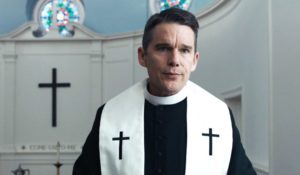 ?I never thought I would make a spiritual film,? he claims. ?I never did. People would ask about it and I said, no, I’m not gonna go there? Now, [though] you can afford to do these kinds of films. In the past, I couldn’t afford to do it. It wouldn’t be cost effective to make this kind of film in America? I knew it was time to turn [my] hand to write a spiritual film. Once I made that decision, then the particulars of the film started coming into my mind. I drew upon the films in the genre that I had known and loved and then sort of glued them together with the glue of Taxi Driver?.
?I never thought I would make a spiritual film,? he claims. ?I never did. People would ask about it and I said, no, I’m not gonna go there? Now, [though] you can afford to do these kinds of films. In the past, I couldn’t afford to do it. It wouldn’t be cost effective to make this kind of film in America? I knew it was time to turn [my] hand to write a spiritual film. Once I made that decision, then the particulars of the film started coming into my mind. I drew upon the films in the genre that I had known and loved and then sort of glued them together with the glue of Taxi Driver?.
With this in mind, one of Schrader?s deep passions remains the exploration of spirituality in film. While many associate this idea with either basic ?faith-based? movies or religious themes within their narratives, he believes that genuine transcendent filmmaking goes much deeper than that by inviting the viewer to meditate upon the moment.
?When you talk about spirituality in film (which is different than religion), you’re talking about withholding devices. You’re talking about devices that come from the field of contemplation and meditation. There is no fast way to meditate. That?s when you start pulling away from the viewer, withholding certain things that they expect, [whether it’s] cutting patterns, music, all of this stuff. [When you do that], you’re inviting them to lean forward. A normal movie is all over you and desperate for your attention. It has its hands all over your body, on your throat, and saying, ?Love me, love me. Here’s some music. You?ll love this music. There were some cool shots. Here’s a pretty girl. Here?s a fast car. Have an explosion. Love me, love me, love me!? It’s exhausting and you don’t have to do a thing.?
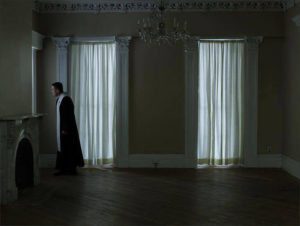 ?Now, you get the opposite kind of feeling with holy film. It’s leaning away from you. It’s saying, ?I know you think you’re going to see this, but you’re not. I know you think that when a character walks off street, you’re going to see where they go, well, maybe you’re not. Maybe we’re going to just watch the empty room for a while.? Even when nothing is happening, something is happening because the viewer is watching and it’s something that’s happening inside of the viewer.?
?Now, you get the opposite kind of feeling with holy film. It’s leaning away from you. It’s saying, ?I know you think you’re going to see this, but you’re not. I know you think that when a character walks off street, you’re going to see where they go, well, maybe you’re not. Maybe we’re going to just watch the empty room for a while.? Even when nothing is happening, something is happening because the viewer is watching and it’s something that’s happening inside of the viewer.?
In light of this, Schrader argues that this sense of spiritual challenge to the viewer remains front and center in First Reformed.
?[For example], if you use a classic holding device like when somebody walks out the door, the door closes, breaks down, we go one, two, three now you’re??Your eye never does that. But you’re in a movie theater and the guy says, okay, let’s watch the door for a few seconds before we do something else. Well, what’s going on in your head? So that is how you start playing that passive aggressive game, getting them to lean forward. And the dangerous line you dance on is when you start using these was holding devices. If you are, [the viewer] can do one of two things: he can start to lean in toward you (in which case you’ve got your goal) or he can get up and leave the theater. So, if you look at the way that First Reformedopens, it’s almost saying to you, ?If you’re not ready for this, would you please leave right now??If it’s going to be too slow for you, just leave now and let the rest of us stay.?
With Reformed, Schrader?s exploration of spirituality challenges the viewer, not only through its style, but also its themes. For instance, whereas many films about the church opt to place their emphasis in hope through faith, Reformedinstead chooses not to shy away from Toller?s own failing faith and the impact it has on his ministry. According to Schrader, it was this sense of spiritual blockage that he was most interested in exploring throughout the film.
 ?He has a sickness and it’s a sickness unto death or despair,? he explains. ?He tells that kid, ?The problem is your despair? but he’s really talking about himself. He can’t communicate with God. He’s trying various things like writing a journal, the rituals of the church, alcohol, prayer and then he picks up this nasty virus. Whether or not he’s actually an eco-warrior, I’m not sure. Maybe he’s just a diseased man who was looking for a cause.?
?He has a sickness and it’s a sickness unto death or despair,? he explains. ?He tells that kid, ?The problem is your despair? but he’s really talking about himself. He can’t communicate with God. He’s trying various things like writing a journal, the rituals of the church, alcohol, prayer and then he picks up this nasty virus. Whether or not he’s actually an eco-warrior, I’m not sure. Maybe he’s just a diseased man who was looking for a cause.?
Of course, given the subject matters pointedness towards the deficiencies of the modern church system in their faith and response to current global issues. When asked whether or not he believes the church is missing something in today?s society, Schrader argues that this is absolutely the case.
 ?Of course, they are,? he asserts. ?There’s a quote from John Lennon that says, ‘I don’t like God much once they get them under a roof.’ That’s the difference between spirituality and religion in the church. The moment you have a building and a membership and dues and uniforms and a hierarchy and organization, you [become] a kind of corporate structure. You have a budget. You have real estate and you have taxes. How do you combine the message of the gospel of Jesus with the obligations of running a corporation? That’s always been the difficulty. You have a big corporation. You have a sponsor, who is a polluter. Sometimes, you have to live in the real world. Geoffrey says ‘You don’t live real world. You’re a pastor of a church no one attends.’?
?Of course, they are,? he asserts. ?There’s a quote from John Lennon that says, ‘I don’t like God much once they get them under a roof.’ That’s the difference between spirituality and religion in the church. The moment you have a building and a membership and dues and uniforms and a hierarchy and organization, you [become] a kind of corporate structure. You have a budget. You have real estate and you have taxes. How do you combine the message of the gospel of Jesus with the obligations of running a corporation? That’s always been the difficulty. You have a big corporation. You have a sponsor, who is a polluter. Sometimes, you have to live in the real world. Geoffrey says ‘You don’t live real world. You’re a pastor of a church no one attends.’?
For full audio of our conversation with Paul Schrader, click here.
First Reformed?was released in theatres on Friday, May 18th, 2018.

